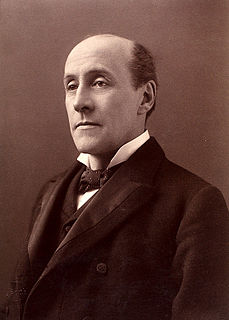A Quote by George Orwell
In a way, the world-view of the Party imposed itself most successfully on people incapable of understanding it. They could be made to accept the most flagrant violations of reality, because they never fully grasped the enormity of what was demanded of them, and were not sufficiently interested in public events to notice what was happening. By lack of understanding they remained sane. They simply swallowed everything, and what they swallowed did them no harm, because it left no residue behind, just as a grain of corn will pass undigested through the body of a bird.
Quote Topics
Accept
Because
Behind
Bird
Body
Corn
Could
Demanded
Did
Enormity
Events
Everything
Fully
Grain
Happening
Harm
Imposed
Incapable
Interested
Itself
Just
Lack
Lack Of Understanding
Left
Made
Most
Never
Notice
Party
Pass
People
Public
Reality
Remained
Sane
Simply
Successfully
Swallowed
Them
Through
Understanding
View
Violations
Way
Were
Will
World
Related Quotes
With this book in my hands, reading aloud to my friends, questioning them, explaining to them, I was made clearly to understand that I had no friends, that I was alone in the world. Because in not understanding the meaning of the words, neither I nor my friends, one thing became very clear and that was that there were ways of not understanding and that the difference between the non-understanding of one individual and the non-understanding of another created a world of terra firma even more solid than differences of understanding.
I think about material that could work in the novel or story as I'm writing. I see if I can get there through what's happening with the character. But it's by inclination. It's not "At this moment this will happen." Usually with my characters you can't tell what has induced them to do anything. That's because, from my understanding of reality - which is always subjective - everything is overdetermined.
I'm very curious about people, and one of the most difficult truths for me to accept as a person is that I'll never be anyone else, and I will never fully understand anyone's perspective other than my own. Because I've come to some understanding of that, I feel it's this very difficult but worthwhile challenge to get as close as I possible can to that. If the only way that we can do that is through language, then that's how it has to be done.
I felt permanently exiled from 'normality.' Whether imposed by self or society, this outsider status - and not the disability itself - constitutes the most daunting barrier for most people with physical impairments, because it, even more than flights of steps or elevators without braille, prevents them from participating fully in the ordinary world, where most of life's satisfactions dwell.
Cross-cultural reality testing forces people to examine both their own and others' understandings of reality. Most people simply assume that the
way they look at things is the way things really are, and judge other cultures' views of reality before understanding them. These judgments are
based on ethnocentrism, which closes the door to further understanding and communication. Furthermore, ethnocentric judgments keep missionaries from examining their own beliefs and values to determine which of them are based on biblical foundations and which on their cultural beliefs.
Maybe I'd never see him again... maybe he'd gone for good... swallowed up, body and soul, in the kind of stories you hear about... Ah, it's an awful thing... and being young doesn't help any... when you notice for the first time... the way you lose people as you go along ... the buddies you'll never see again... never again... when you notice that they've disappeared like dreams... that it's all over... finished... that you too will get lost someday... a long way off but inevitably... in the awful torrent of things and people... of the days and shapes... that pass... that never stop.
In the deep, unwritten wisdom of life there are many things to be learned that cannot be taught. We never know them by hearing them spoken, but we grow into them by experience and recognize them through understanding. Understanding is a great experience in itself, but it does not come through instruction.
You will remember when a bird crashed through the window and fell to the floor. You will remember, those of you who were there, how it jerked its wings before dying, and left a spot of blood on the floor after it was removed. But who among you was first to notice the negative bird it left in the window? Who first saw the shadow that the bird left behind, the shadow that drew blood from any finger that dared to trace it, the shadow that was better proof of the bird's existence than the bird ever was?
Reachable, near and not lost, there remained in the midst of the losses this one thing: language. It, the language, remained, not lost, yes, in spite of everything. But it had to pass through its own answerlessness, pass through frightful muting, pass through the thousand darknesses of deathbringing speech. It passed through and gave back no words for that which happened; yet it passed through this happening. Passed through and could come to light again, “enriched” by all this.
Fashion for me is the perfect combination of all the things I love. There's an element of history to it. I love understanding why people wear what they wear, why during certain periods in history women looked the way they looked. There was always a strong reason behind it, whether it was because of what was available to them or because of what was happening in the world politically or sociologically. Fashion is like an amazing blend of commerce, travel, and creativity - of studying what people were about during a particular time.
[Kierkegaard] did not care for large public events because every crowd is in itself an untruth. The only way out is isolation, aloofness. Only the individual is a reality and only the individual is true. Maybe the process of isolation in an individual is one of the most important matters that exists. Is not the whole point of this world for people to separate and become individuals?
There are some audiences who are uncomfortable with the ambiguity, though. They want a film to chew their food for them, they want Hollywood endings that tie everything together in the end and answer all of the questions. They are usually people on one extreme of the political spectrum or other and they haven't been happy because the film is not polemical enough on their side. They aren't usually people who aren't interested in understanding points of view that they disagree with - they just want to attack their opponents - and I'm ok with them not liking the film.
An inflated consciousness is always egocentric and conscious of nothing but its own existence. It is incapable of learning from the past, incapable of understanding contemporary events, and incapable of drawing right conclusions about the future. It is hypnotized by itself and therefore cannot be argued with. It inevitably dooms itself to calamities that must strike it dead.






































